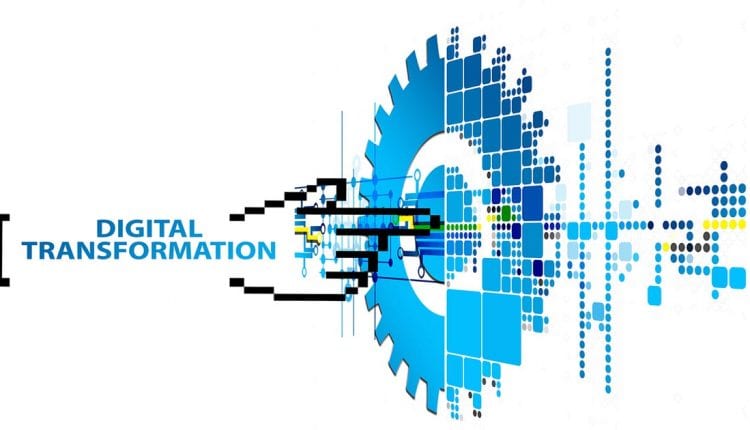70% of Indian knowledge workers believe that embracing new technologies is essential to keep a company strong and employees efficient
Enterprises are constantly making an effort to enable business transformation through the adoption of technology. Digital transformation is not only impacting business, but many employees have needed to evolve their way of working, often at dizzying pace. As these changes reverberate around the workplace competencies and attitudes towards digital working vary, creating a complex landscape for business and IT leaders to navigate.
To understand more about the impact the digital workplace has had upon employees, Citrix commissioned a study of 1,000 knowledge workers in India, who were studied on a range of workplace issues including how they access a digital work environment, send work documents for use outside of the office, communicate with colleagues, and save company data.
- Advertisement -
The study shows that over a third (39%) of respondents believe their company lacks a true technology strategy to support the growth. Further, 26% of workers say that they are disappointed that their company culture values technology over skills and experience.
However, Indian employees remain open to innovations and welcome the change in their digital work habits. When asked what they mainly think about embracing new technologies, a promising 70% think that it is essential to keep a company strong and employees efficient while 17% think that it is most often synonymous with productivity gains but should not be an end to itself.
When their company launches a new application to replace the one, they are familiar with, more than half of the respondents (54%) would feel excited, 22% of them would feel happy and 21% would feel curious.
Moreover, even when a tool is considered unsuitable, only 10% of those surveyed said that they decided to boycott it. On the other hand, 29% workers said that they used it anyway, 29% complained to their manager or IT team, 28% explored the tool until they understood every limit and possibility.
Even with the right attitude to embrace digital solutions, there are some who may be eager to try new tools. Therefore, it is important for an enterprise to ensure that their employees don’t hesitate to reach out to the IT team for help. For example, when looking for the right tool for a new task, majority of knowledge workers (37%) find a new tool online and ask the IT team to install it. Worryingly, over a quarter (26%) would look for a free online tool and another 20% would find a new tool online and try to install it on their own; opening organizations to risk.
The transition to a modern and connected workspace is not proceeding at the same pace for everyone and remains a challenge for some, due to lack of appropriate training. To the question, what type of training they’d prefer to benefit from:
- 36% say they prefer basic training on how to make the best of their IT environment – realistically, they believe they could do more with the tools currently at their disposal
- 28% say that they’re ready to help their company tackle challenges related to analytics, artificial intelligence and predictive technologies but would need help
- Advertisement -
The findings of the study show clearly how differently workers have embraced digital transformation in the workplace, and how responsive IT leaders must be to an individual’s needs and preferences. The study revealed four key technology ‘personas’ among Indian knowledge workers:
The challenger
- 29.34% of workers exhibit ‘challenger’ tendencies
- They understand the positive impact of technology and are most likely to use their company storage space, such as SharePoint or OneDrive, to access documents outside of the office
- Their determination to drive results could lead to risky behaviour, such as using public Wi-Fi with little or no protection, if it is the only available connection
The power seeker
- 28.28% of workers are ‘power seekers’ and are obsessed with how technology can be leveraged, however, this could potentially come at a cost
- They are most likely to message their colleagues through unofficial apps like SMS, WhatsApp, WeChat or Telegram to communicate ‘on the go’
- When faced with a new task, instead of seeking the advice of IT, they would be inclined to look for a free online tool to install themselves
The knowledge seeker
- 23.21% of employees are considered ‘knowledge seekers’
- They are not the most proficient tech users; however, they recognise the benefits of technology for their organisation
- They believe email is the most comfortable method to communicate with colleagues, and instead of taking a risk, they would check with IT before connecting to a public Wi-Fi network
The sceptic
- 19.17% of knowledge workers are ‘sceptics’, unsure about how technology can improve work performance. They are effective communicators offline but require support in digital contexts. Typically lacking technology know-how and needing reassurance, training and support from a stronger leader.
Rather than connect to their professional company storage space or the cloud, they are most likely to store documents on their desktop to work outside of the office space Ravindra Kelkar, Area Vice President, Sales & Services, Indian Subcontinent, Citrix says, “One of the best aspects of Indian companies is the diversity of worker profiles across sectors. Given this scenario, enterprises have to tackle challenges related to technology adoption across profiles. Therefore, the adaptability and flexibility of the new “Intelligent Workspace” will be key to the success of business transformation.”
If you have an interesting article / experience / case study to share, please get in touch with us at [email protected]
Advertisement



